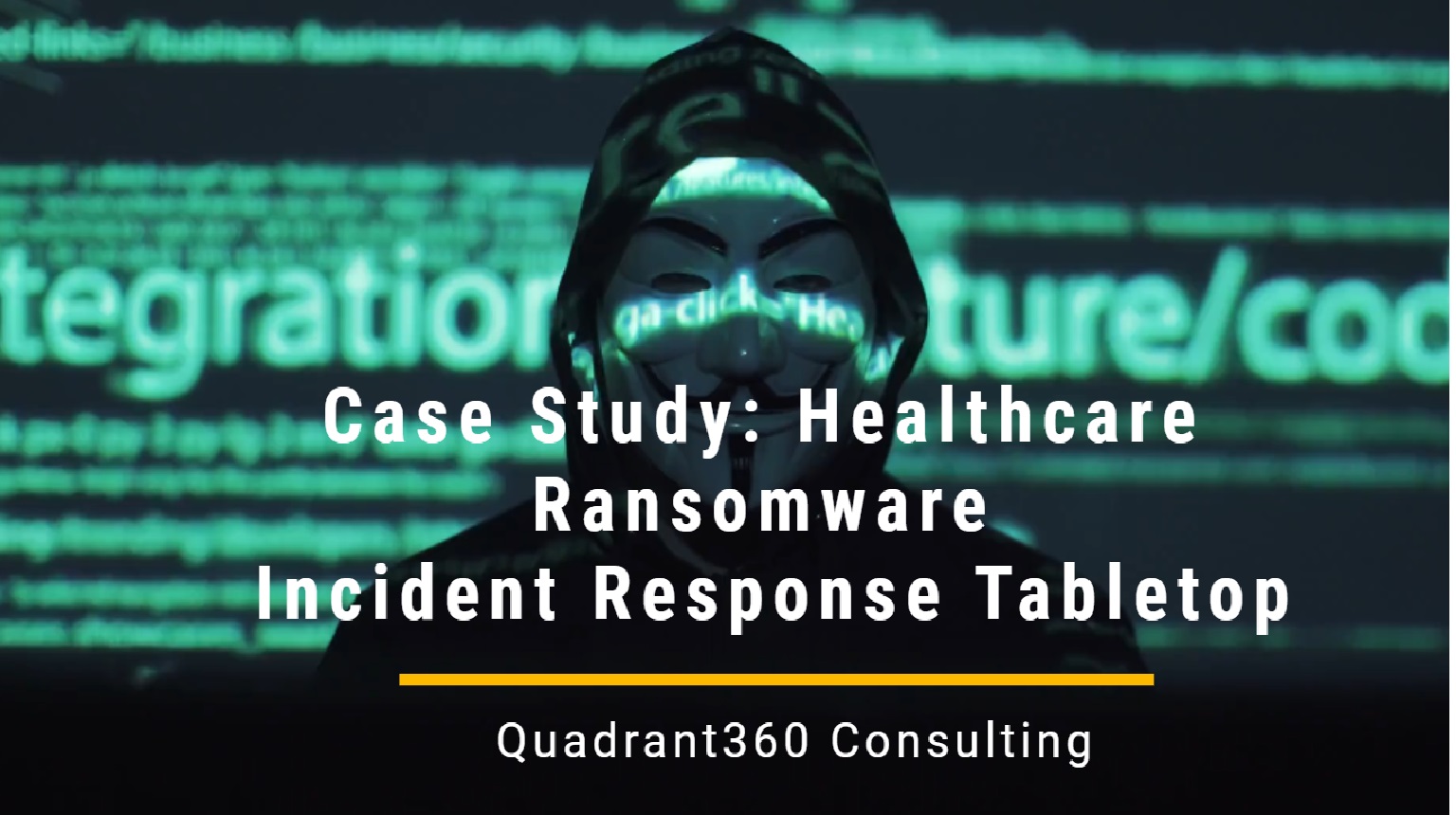Introduction
In an increasingly digitized world, even well-established and renowned brands in Asia face numerous challenges, especially when it comes to cybersecurity. With the potential for devastating data breaches and ransomware attacks, these respected organizations must be well-prepared to protect their reputation and maintain their operations. In a recent engagement with a confidential client, a prominent and well-known brand in Asia, we uncovered a significant gap in their cybersecurity posture – a lack of incident response preparedness. In response to this pressing concern, we initiated a ransomware tabletop exercise to empower our client with the knowledge and skills necessary to fortify their defenses against potential ransomware threats.
Challenges in Healthcare Cybersecurity
The landscape of cybersecurity in the healthcare sector is fraught with complexity. The vast volume of sensitive patient data, reliance on interconnected systems, and stringent regulatory requirements make healthcare organizations an attractive target for cybercriminals. The consequences of a successful ransomware attack in this context can be catastrophic, ranging from compromised patient care to substantial regulatory fines.
One of the central challenges our client grappled with was their limited incident response preparedness. While they had invested in cybersecurity measures, they lacked a comprehensive plan to effectively combat a ransomware attack. This left them vulnerable and exposed to the ever-evolving threat landscape.
The Ransomware Tabletop Exercise: A Simulation for Preparedness
To bridge the identified gap in incident response preparedness, we designed and executed a ransomware tabletop exercise tailored to our client’s unique needs. The primary objectives were multi-fold:
Assess Current Capabilities: We initiated an in-depth evaluation of our client’s readiness to respond to a ransomware attack. This included a thorough examination of both their technical and organizational preparedness.
Identify Weaknesses: The exercise unearthed vulnerabilities and weaknesses in their existing incident response plan, personnel expertise, and operational processes.
Enhance Decision-Making: We provided a platform for our client to refine their decision-making skills under high-pressure circumstances. Key personnel gained hands-on experience, ensuring they could make critical choices during a ransomware incident effectively.
Promote Collaboration: Recognizing the critical importance of teamwork, we fostered collaboration among various departments and stakeholders, elevating communication and strengthening collective resolve.
The Realistic Scenario
In the simulated scenario, our client’s network fell victim to a highly realistic ransomware attack. Critical personnel from departments including IT, management, legal, and compliance were summoned to respond to the evolving crisis. The simulation unfolded with real-time decision-making, scenario updates, and a dynamic environment mirroring the unpredictability of an actual ransomware attack.
Personal Insight – Alan’s Story
One of the key participants in the exercise, using the pseudonym “Alan” to protect his anonymity, shared his experience: “As the head of IT, I’ve always felt confident in our cybersecurity measures. However, being part of this tabletop exercise opened my eyes to the complexity of a ransomware attack. It felt eerily real, and the pressure was intense. But it was an invaluable experience. It forced us to collaborate and make critical decisions as a team. Now, I can say with confidence that we’re better prepared to protect our patients’ data.”
Participants grappled with a gamut of challenges, such as deciding whether to pay the ransom, coordinating with law enforcement agencies, and managing public relations nightmares. This immersive experience allowed them to practice and refine their critical decision-making skills in a controlled environment, ensuring they would be well-equipped to navigate a real-life ransomware incident.
The Outcome: Empowering Healthcare Security
The ransomware tabletop exercise yielded numerous valuable outcomes for our client:
- Identified Vulnerabilities: The exercise served as a spotlight, revealing chinks in the armor of their incident response plan and highlighting areas requiring improvement, such as communication protocols and decision-making processes.
- Improved Decision-Making: Participants left the exercise with an enhanced ability to make critical decisions under pressure, a skillset crucial for responding effectively to a real ransomware incident.
- Enhanced Collaboration: The exercise nurtured a culture of collaboration among diverse departments and stakeholders, enhancing communication and teamwork.
- Refined Incident Response Plan: Armed with insights from the exercise, our client was able to refine and bolster their incident response plan, making it more comprehensive and robust.
- Raised Awareness: A heightened sense of cybersecurity awareness among employees was a collateral benefit, fostering a culture of vigilance and reinforcing the importance of safeguarding patient data.
- Compliance Alignment: The revised incident response plan aligned seamlessly with stringent regulatory requirements, ensuring that our client could demonstrate compliance should an incident occur.
Conclusion: A Safer and More Resilient Healthcare Ecosystem
As the cybersecurity threat landscape continues to evolve, the healthcare industry must prioritize cybersecurity and incident response preparedness. Our engagement with a confidential client in the medical sector underscored the critical importance of addressing vulnerabilities in their cybersecurity posture, particularly in the context of ransomware attacks.
The ransomware tabletop exercise was a pivotal milestone in enhancing our client’s readiness to confront a ransomware incident head-on. By uncovering vulnerabilities, enhancing decision-making, fostering collaboration, and refining their incident response plan, our client is now better equipped to protect patient data and ensure the continuity of critical healthcare operations.
As we move forward, it is essential to recognize that proactive measures, such as tabletop exercises, are indispensable in staying ahead of cybercriminals. Cybersecurity is not solely an IT concern; it is a fundamental pillar of patient care and trust in the healthcare industry. Our unwavering commitment to assisting clients in securing their digital assets and safeguarding patient information ensures a safer, more resilient healthcare ecosystem for all.


